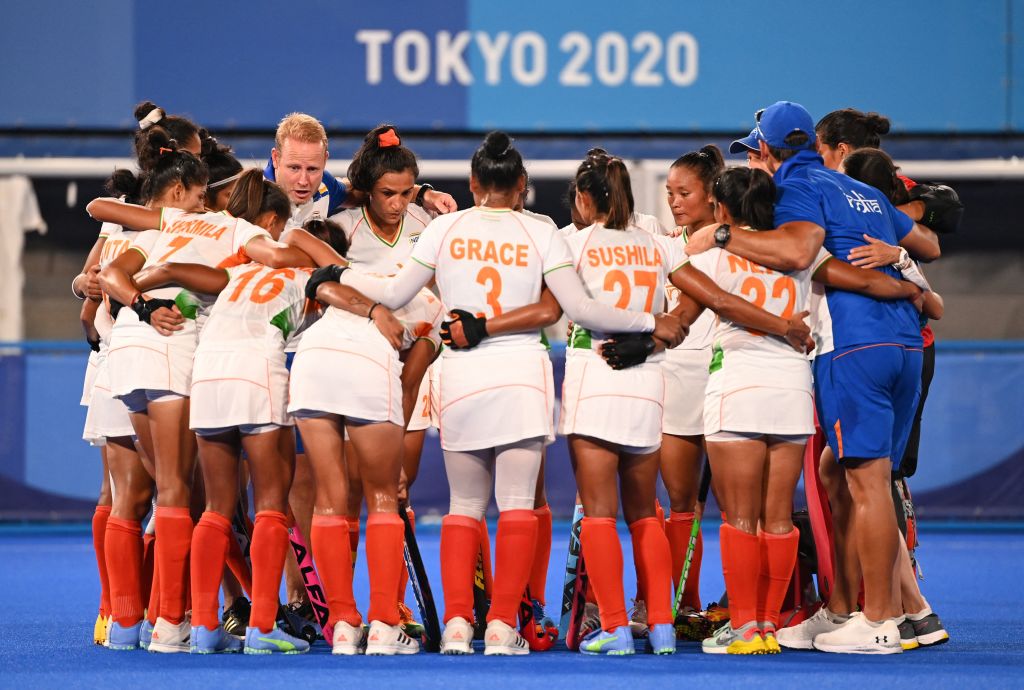- Saturday, November 23, 2024

By: Pramod Kumar
THE Indian government has overhauled an athletic system that was once underfunded and corrupt ahead of the Tokyo Games, but the pressure to perform weighs on competitors and the country again failed to win a gold medal, reported The New York Times.
India had sent a 127-member Olympic delegation to Tokyo, which was the country’s largest, youngest and most decorated to date. However, the country has won just three medals-one silver and two bronze till now.
The day hockey took its revenge over cricket in India
Mirabai Chanu has won a silver medal in weightlifting, P V Sindhu and Lovlina Borgohain won bronze medals in badminton and boxing respectively.
According to the report, the weight of a nation’s expectations has been crushing for Indian participants, particularly after the competition was stalled for months because of the coronavirus pandemic.
Follow Tokyo Olympics 2021 news here
A 19-year-old Indian shooter, who had been pegged for a possible medal in the air pistol, admitted that the burden to win distracted her in a sport where concentration is paramount.
In archery, Atanu Das had written the word “calm” on his hand as he competed in the 1/8 elimination round over the weekend. He lost. The day before, his wife and fellow archer, Deepika Kumari, did not advance past the quarterfinals, despite being the world No. 1, The Times report said.
“Maybe we took this Olympics too seriously, the Indian contingent,” Das said. “We forgot to enjoy our shooting or our skill.”
India’s archers used to train in obscurity. The new Olympic push has brought them sudden fame, along with months of free training at an army sports camp. The attention was overwhelming, athletes said.
Das added: “When we win the World Cup, no one knows. When we win the world championship, no one knows. When we get world No. 1, nobody knows. But Indians are in the Olympics, then everyone knows everything.”
After India’s substandard performance at the 2016 Games in Rio de Janeiro — one silver and one bronze — the government began funneling money to a sports bureaucracy that was underfunded for decades and stained by corruption. Private ventures stepped in, training elite athletes whose upward trajectory they might be able to harness, The Times report added. States have also contributed to grass-roots sports.
“Now the government is trying hard to change the sports system. But they have to do a lot. It’s a long journey they have to run,” Vijay Sharma, a weight lifting coach who has worked with Tokyo silver medalist Chanu for seven years, told the newspaper.
In the Tokyo Games, which will end on Sunday (8), Ravi Dahiya, competing in men’s freestyle wrestling, is guaranteed at least silver after winning a semifinal bout on Wednesday (4), and javelin thrower Neeraj Chopra is still in contention, too.
The women’s hockey team advanced to the semifinals for the first time but after a loss on Wednesday (4) must now battle for bronze, just like their male counterparts. The archers missed their mark. A discus thrower came in sixth. And the much-vaunted shooters failed to follow in Bindra’s footsteps. None got close to a medal.
Aside from a string of men’s hockey wins generations ago, India has won only one other gold in its Olympic history by Abhinav Bindra in shooting in 2008.
Bindra said that his success was rooted not in state support but in family wealth. His father built a world-class shooting range in their home in the northern city of Chandigarh. Then he topped it up with a swimming pool and a gym so that his son could build his muscle. At the time, the only comparable shooting range was in New Delhi.
Viren Rasquinha, a former captain of the Indian hockey team, and the chief executive of Olympic Gold Quest, a nonprofit group founded by former top-flight athletes to promote the next generation of talent, has said that the national sports authority has shed some of its lumbering, graft-ridden reputation.
“But, creating an ecosystem of coaches, training facilities, infrastructure and equipment take time. Rural youth have the passion and fire in the belly, which is missing among the students in the cities,” he added.